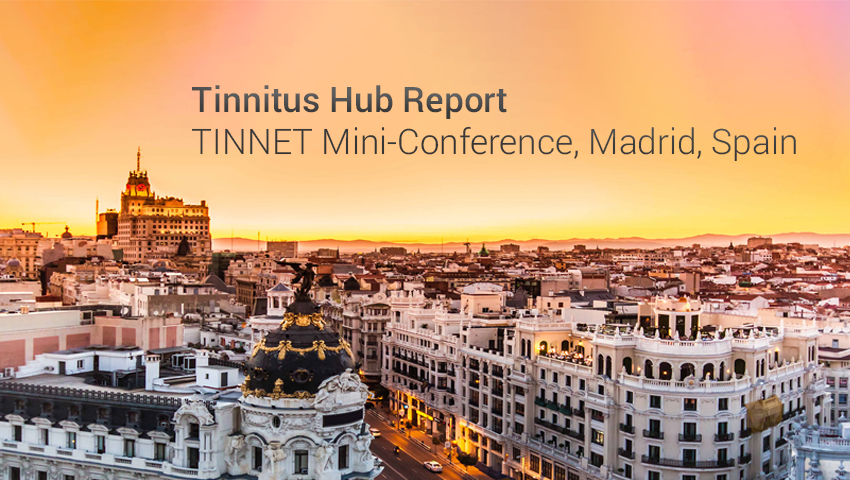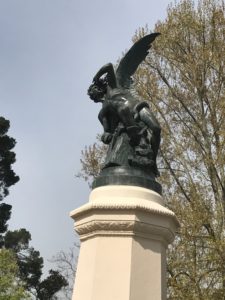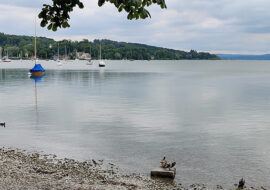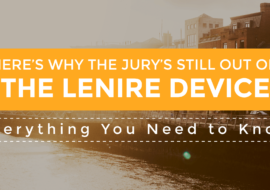
TINNET Mini-Conference in Madrid
I had an eventful flight, surrounded by a school exchange trip on their way back to Madrid. They had no volume control, just on or off. I managed to get stuck right in the middle of another school trip on the way back, I mean what are the odds… Landed, got to hotel, quick meal and sleep ready for the conference.
On Thursday the conference began, and I met up with Myra Spiliopoulou and her students Uli Niemann and Tommy Hielscher from University Magdeburg. We went through the findings so far on the data mining project involving Tinnitus Talk and some other tinnitus platforms. Myra also did a talk on the data on the following day of the conference.
I won’t share too much as it is a work in progress, but they are doing very well. We are going to get some excellent insights into the way we talk about tinnitus, the patient journey and so much more. Research like this is great for awareness and understanding. It’s also cross disciplinary as the researchers are from the Knowledge Management and Discovery Lab, Myra is Professor of Business Information Systems.
Before the afternoon session we had a trip to see some of the sights in Madrid. I’m not big on taking pictures, I prefer to experience rather than record, I did take this one though. It’s apparently the only statue devoted to the devil himself. It looked pretty cool 🙂

On the afternoon of the conference I sat in on Working Group 5 (WG5). They gave some background on their project in TINNET and afterwards we tried the Delphi survey out to give feedback.
WG5 are working on developing outcome measures for tinnitus trials. At the moment trials are kind of all over the place, making it near impossible to do proper comparisons between different trials to properly understand how effective a therapy is – especially in comparison to another
Once the WG5 project is complete we will have the first proper guidance and a clear set of outcome measures – the things that should be measured in a tinnitus trial as indicators of success. Consultation is being sought from a range of professionals through the Delphi process, as well as from patients. This is our chance to tell researchers what actually matters to us, what improvements are significant to us and influence the trials of the future. We’ll soon have a link for you to take part.
This work is so important because it sets a standard and prevents treatments from having grand claims of success when they have an outcome that matters little to us patients, or to clinicians. When the guidance is launched, we have our first real standard and our first way of holding treatments to account, and understanding just how they perform against each other.
The second day was filled with presentations, which included mine. It’s always difficult to engage your brain when you are playing your own presentation in your head to make sure you’re confident in the delivery. Nevertheless, there were some really interesting pieces of research.
I will apologise here for not summarising everyone but I have been a bit slow in getting to this write up and I didn’t take comprehensive notes.
The first presentation was delivered in the absence of Christopher Cederroth, who unfortunately couldn’t make the conference. The research into the possible heredity of tinnitus uses a large Swedish dataset. Bilateral tinnitus was found to have a genetic connection, unilateral tinnitus was not. It isn’t yet clear whether the tinnitus is due to genetic hearing loss, they need to conduct further research which combines audiological information.
Women were found to be more susceptible to tinnitus in the data set, especially younger women. There is no gender bias on hearing loss, which does appear to support the theory of genetic heritability of tinnitus.
There were consecutive presentations on fMRI and EEG. Without wanting to over-simplify, two things that interested me on these were –
1. The entire auditory system was active during somatic modulations when observed in fMRI. Participants used their jaw to modulate the tinnitus sound.
2. Closing eyes results in an increase of Alpha activity when observed via EEG. All participants with tinnitus displayed an increase in Gamma, which was corroborated with the results of several studies.
I didn’t get any notes after this, unfortunately I thought I would be better taking pictures of the slides rather than typing away during each talk, but the pictures came out really badly… There is an agenda attached here so you can see what the talks were about. If you have any questions on them I will happily forward them to the presenter and ask them.
I presented on the resource of Tinnitus Talk, the work we want to do with Tinnitus Hub and how reaching out to hear the patient voice can progress research and understanding. Thanks To Markku I had a beautifully designed slide show!
The talk went well and seemed to generate a lot of interest in the room. Time will tell of course but I really feel there is a shift towards working more closely with and understanding patients. This can only be positive; after all, one of the biggest complaints is that we feel research is out of touch with us.
We do have a few projects in the making and more on the horizon, so for me I feel that we are in an excellent position, alongside researchers, to get across patient views. This can help to provide information that guides projects, give the patient view on the research that is actually important to us and even provide seed research as development for larger projects.
I’m generally an optimist, looking toward possibilities and what can be achieved, so you may have a different view. For me though, as a longer-term patient (14 years at the time of writing) I haven’t had this degree of optimism before about where research is headed. I think that we all focus so much on a cure that we forget that, in reality, a cure is whatever it is that stops tinnitus becoming a problem. The more we understand sub-types and the way that groups of people respond to treatments, the better we can target these treatments and have really effective interventions, which will be cures for some.
One thing that we can do to make a difference as a group is to provide a large pool of information. This will push research on faster and help trials and projects to be designed around what really matters to us, better understanding can only be positive for a cure.





